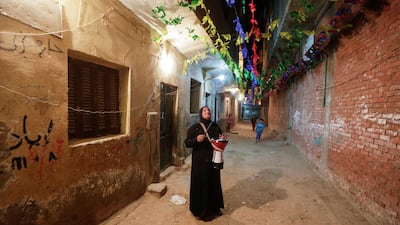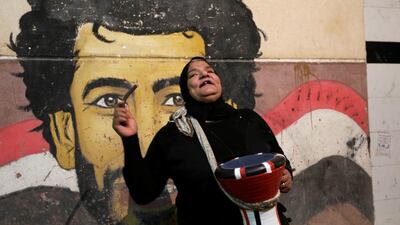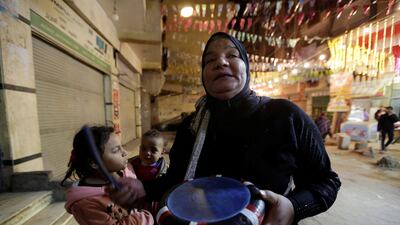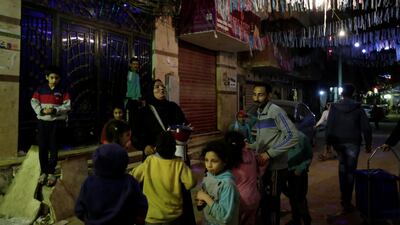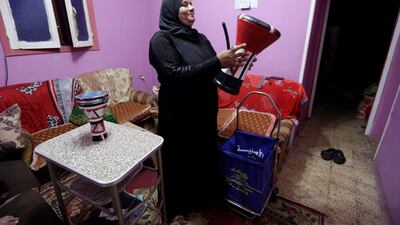Each Ramadan, musaharatis roam Cairo’s streets, banging their drums every night to wake sleeping Muslims for their suhoor.
The job has almost always been done by men, but one woman has managed to carve out a place for herself in the seasonal profession, which dates back to the time of the Prophet Mohammed.
After the death of her older brother a decade ago, Dalal Abdelqader embarked on a career as one of the few female musaharatis in Egypt.
Her brother was an experienced musaharati, having spent 25 Ramadan seasons banging his drum and chanting to wake fasters up for their predawn meal, the last allowed before sunset.
Cairo streets are not where you would typically find women safely roaming at night, but Dalal’s passion for her profession has made her a beloved Ramadan staple of her neighbourhood.
Each night, residents flock around her as she makes her rounds through the streets. Many have praised her chanting, calling her voice beautiful.
Dalal’s family have been very supportive of her drive to be the neighbourhood musaharati, unlike many Egyptian families who would not allow a female member to go out so late at night.
Typically consumed right before dawn, suhoor is an important meal in Ramadan that many fasting Muslims do not like to miss, a fact that has always made the musaharati’s job an important one.
Performed under different names all over the Arab world, the traditional drum and chanting performance has religious significance for many who believe that Bilal ibn Rabah, one of the Prophet Mohammed’s disciples and Islam’s most famous muezzin, started the tradition at the prophet’s suggestion.
The profession reached its peak in Mamluk-era Egypt, when a syndicate was formed to represent all the musaharatis.
